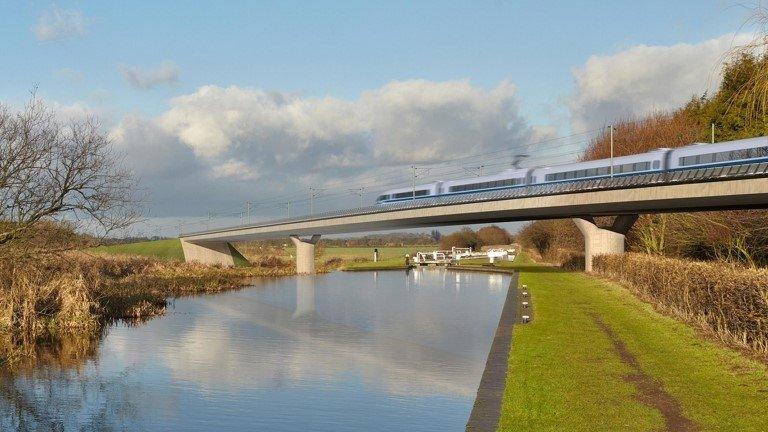HS2 to boost UK economy 'by £15bn a year' says report
- Published
- comments
Transport Secretary Patrick McLoughlin: "The main reason we need HS2 is a heart bypass for the clogged arteries of our transport system"
A new report says the HS2 rail project could boost the UK economy by £15bn a year.
Transport Secretary Patrick McLoughlin presented the findings as he reasserted the case for the new rail line.
The report, from accountants KPMG, external, says that regions outside London will be the biggest beneficiaries of the new service.
But the economic boost will not be felt until 2037, it says.
In a speech at the Institute of Civil Engineers, Mr McLoughlin argued that rejecting HS2 would amount to a "national loss of nerve".
HS2 was necessary because the "clogged arteries" of the nation's transport system needed a "heart bypass", he said.
But Mark Littlewood, director general of the Institute of Economic Affairs, told the BBC: "Any private investor would consider this to be a colossal waste of money.
"That is not to say that we don't need to improve capacity. Rail is an extraordinarily expensive way of doing that."
The government was asking UK taxpayers to take "a huge gamble on their extremely dodgy numbers", he added.
'Stronger'
Mr McLoughlin argued that the benefits of HS2 were not simply faster journey times and new jobs, but up to 500,000 fewer lorry journeys a day on the country's roads, according to a separate report.
"High Speed Two will make Liverpool stronger. Manchester stronger. Leeds stronger. Britain stronger", he said.
John Longworth from the British Chambers of Commerce backs HS2, but Mark Littlewood from the Institute of Economic Affairs says it is a waste of money
"A £15bn annual boost to the economy. With the North and Midlands gaining at least double the benefit of the south."
Dismissing "scare stories" over the budget, he maintained that it would remain £42.6bn, with a contingency fund of £14.4bn.
But earlier this week, the Public Accounts Committee (PAC) criticised the scheme, saying: "So far, the Department [of Transport] has made decisions based on fragile numbers, out-of-date data and assumptions which do not reflect real life."
The committee also said there was no evidence the line would help the growth of regional cities and would instead draw even more business to London.
KPMG's report was commissioned by HS2 Ltd, which is a non-departmental public body wholly owned by the Department for Transport.
Report author Richard Threlfall, KPMG's head of infrastructure, said: "What I hope this work will do is put some new evidence into the debate, because what we've seen over the last few months is an awful lot of opinions and to be honest not a lot of evidence on the ground as to what effect this will have.
"And what our report shows, beyond any reasonable doubt, is that HS2 will deliver massive benefits to the UK economy."
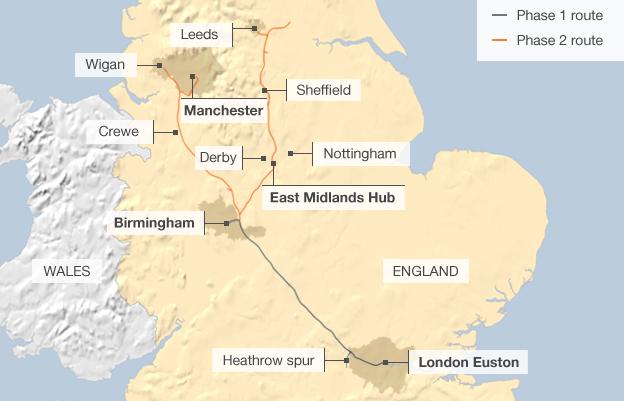
'Creaking'
John Longworth, director general of the British Chambers of Commerce, told the BBC: "Businesses up and down the country are absolutely convinced that this is a really important infrastructure project. It is one of the key infrastructure projects for the UK."
He argued that simply renovating existing rail lines that were "creaking at the seams" would cause "chaos".
The latest study was commissioned by HS2 Ltd, the company responsible for developing and promoting the project.
It says Birmingham's economy could be boosted between 2.1% and 4.2% a year, while Manchester would benefit between 0.8% and 1.7%.
For Leeds, the boost would be 1.6% and London 0.5%.
Conservative MP Andrew Bridgen: "Enough is enough. This is tremendously bad value for money"
Wednesday's report calculates the benefits of the project in a different way from previous efforts.
Time saved is a less important part of the calculation. Instead, the report includes the benefits of extra seats, which means passengers will be able to work while travelling.
It also takes into account the reduction in congestion elsewhere on the network.
"The point about High Speed Two is that you won't have to travel on it to gain from the better transport system and economic growth it will support," he said.
The high-speed line would run between London and Birmingham from 2026 before being extended to Manchester and Leeds from 2033.
- Published6 October 2023
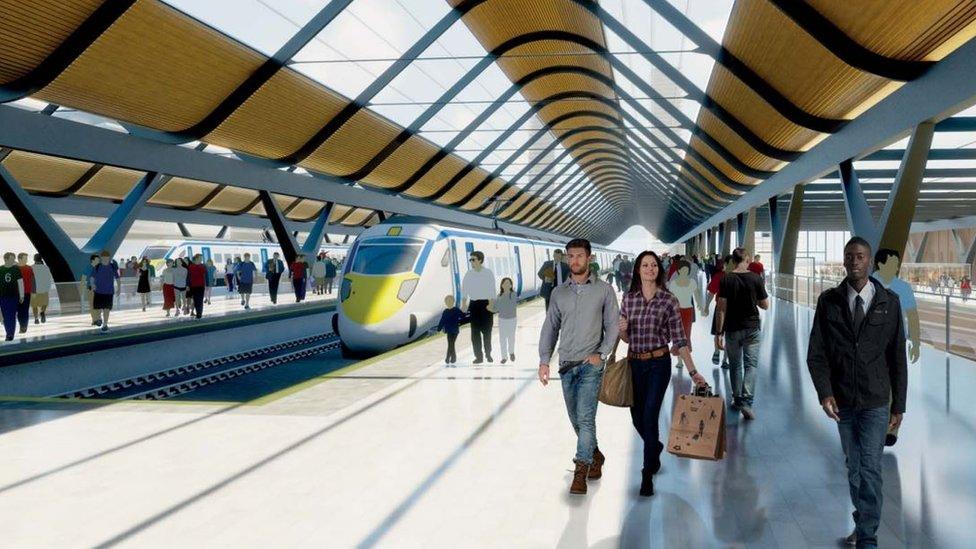
- Published11 September 2013
- Published11 September 2013
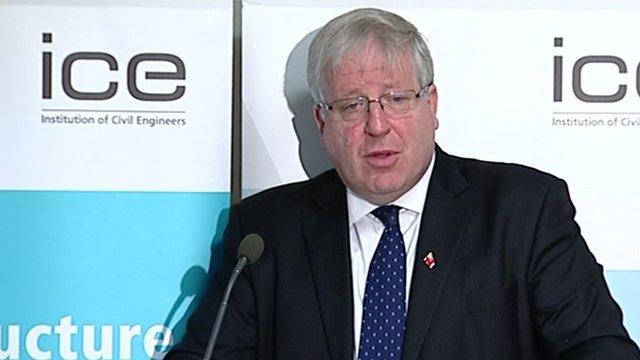
- Published8 September 2013
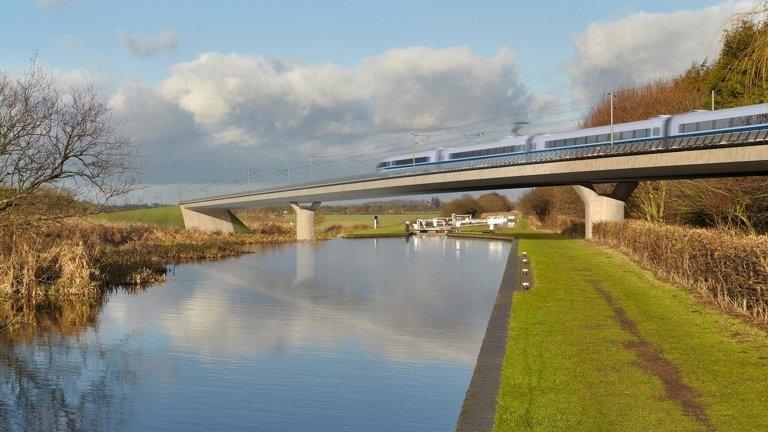
- Published9 September 2013
